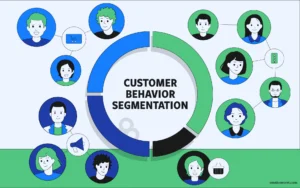Understanding consumer behavior is crucial for developing effective marketing strategies. By gaining insights into how consumers think, feel, and act, businesses can tailor their marketing efforts to better meet customer needs and drive engagement. Here’s how to leverage consumer behavior insights to optimize your marketing strategies.

The Importance of Consumer Behavior
Consumer behavior refers to the study of how individuals make decisions about purchasing products or services. It encompasses everything from the initial awareness of a product to the final purchase decision and post-purchase evaluation. By understanding the factors that influence consumer behavior, businesses can predict how their target audience will respond to marketing campaigns, product launches, and other business activities.
Identifying Key Factors Influencing Consumer Behavior
Several factors influence consumer behavior, and understanding these is essential for tailoring your marketing efforts:
- Cultural Factors: Culture shapes consumer values, beliefs, and behaviors. Understanding the cultural background of your target audience helps in creating relevant and resonant marketing messages.
- Social Factors: Social influences, including family, friends, and social media, play a significant role in consumer decisions. Consumers often seek opinions and recommendations from their social networks before making a purchase.
- Personal Factors: Individual characteristics such as age, gender, income, and lifestyle affect buying behavior. Tailoring your marketing efforts to these personal factors ensures that your message reaches the right audience.
- Psychological Factors: Motivation, perception, and attitudes influence consumer decisions. Understanding what drives consumer behavior allows you to craft messages that appeal to their needs and desires.
Conducting Market Research
Market research is essential for gaining insights into consumer behavior. By gathering and analyzing data, businesses can understand their audience’s preferences, habits, and pain points. Techniques such as surveys, focus groups, and interviews provide valuable qualitative data, while analytics tools offer quantitative insights. Use this data to identify patterns and trends that inform your marketing strategies.
Segmenting Your Audience
Segmentation involves dividing your audience into distinct groups based on shared characteristics such as demographics, behavior, or preferences. By segmenting your audience, you can create more personalized and targeted marketing campaigns. For example, a luxury brand might target high-income individuals with a focus on exclusivity, while a budget brand might appeal to price-sensitive consumers with value-driven messaging.
Personalizing Marketing Messages
Personalization is key to connecting with consumers on a deeper level. Tailor your marketing messages to reflect the specific needs, preferences, and behaviors of each audience segment. Personalized emails, product recommendations, and targeted ads are more likely to resonate with consumers and drive conversions. Use data analytics to gather insights on individual customer preferences and deliver tailored content that meets their expectations.
Leveraging Behavioral Data
Behavioral data provides insights into how consumers interact with your brand online. By analyzing website visits, click-through rates, and purchase history, you can understand what drives consumer actions. Use this data to refine your marketing strategies, such as optimizing your website for user experience, improving product recommendations, or creating targeted ad campaigns that align with consumer behavior.
Creating Engaging Content
Content that speaks directly to your audience’s needs and interests is more likely to engage them. Develop content that addresses common pain points, answers questions, and provides valuable information. By aligning your content with consumer behavior insights, you can build trust, foster loyalty, and encourage repeat business.
Adapting to Changing Consumer Behavior
Consumer behavior is dynamic and evolves over time due to various factors such as technological advancements, economic conditions, and cultural shifts. Stay informed about changes in consumer behavior by continuously monitoring trends and gathering feedback. Adapting your marketing strategies to align with these changes ensures that your brand remains relevant and responsive to consumer needs.
Conclusion
Understanding consumer behavior is essential for tailoring your marketing efforts and achieving success. By identifying the key factors that influence consumer decisions, conducting thorough market research, and personalizing your marketing messages, you can create more effective campaigns that resonate with your target audience. Leveraging behavioral data and staying adaptable to changes in consumer behavior will keep your marketing strategies aligned with consumer expectations and drive better results.




